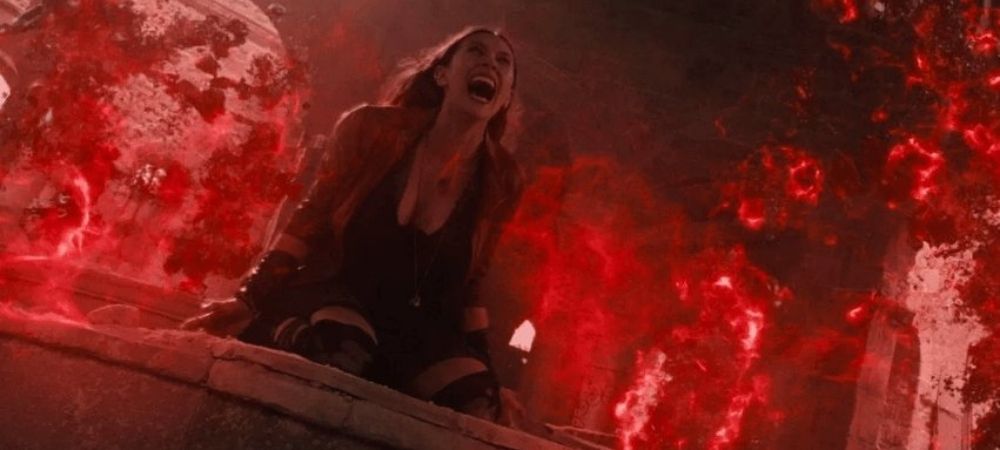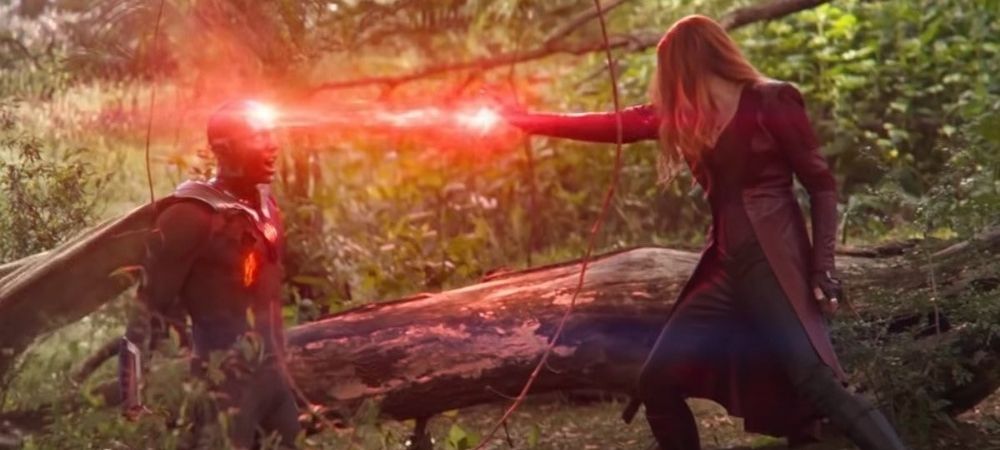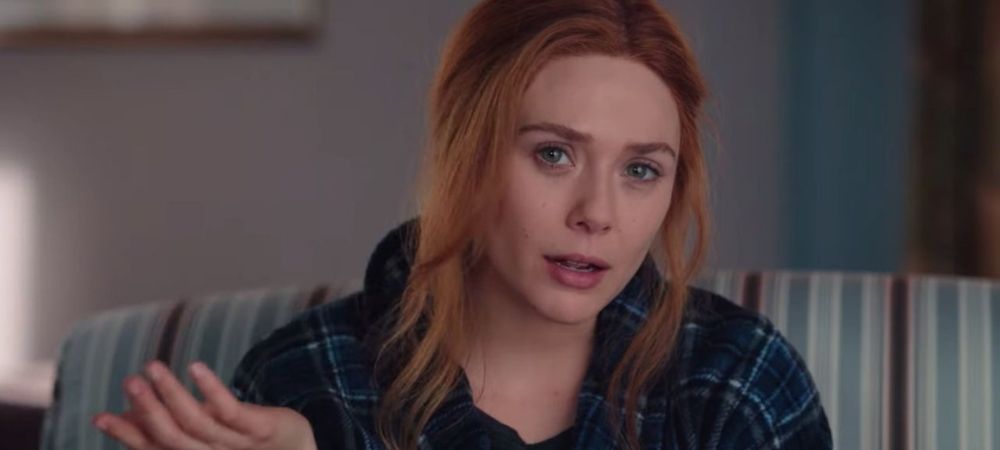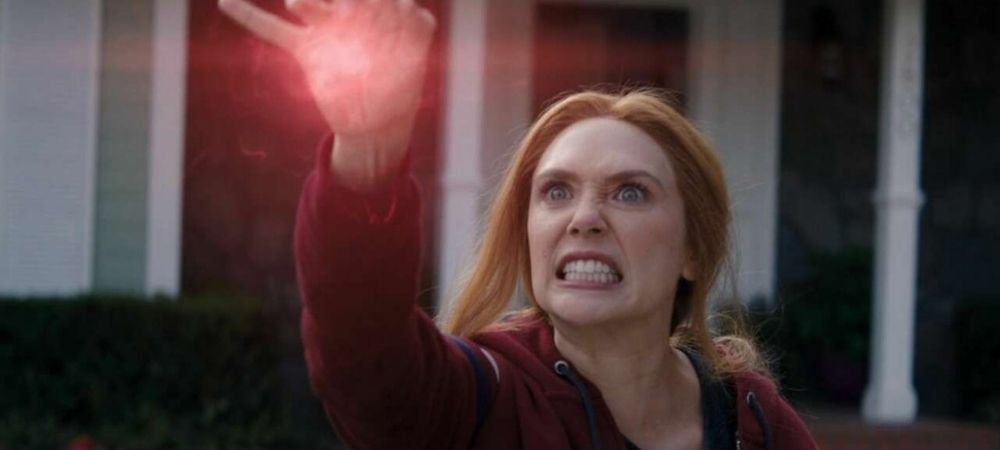WandaVision is an excellent show, but it seems like the most important and foundational aspect of it continues to fly under the radar: Wanda’s grief.
Of course, that’s not the first aspect of the show that anyone thinks of. That honor goes to the impeccable sitcom odes, the many mysteries that abound, or even how the show will factor into the larger Marvel Cinematic Universe.
While these are all extremely valid thoughts and musings, they overlook the heart and catalyst of the show: Just how much Wanda has experienced and how little she has been able to process it. Above all else, this is the most important aspect of the show and, yet, it’s the one thing that continues to get overlooked, both in our world and that of the MCU.
And by “continue,” I really do mean that her grief has consistently been ignored and downplayed, even before WandaVision was even a glimmer on the MCU roadmap.
Wanda’s history of compound grief
Wanda has been living with unaddressed grief since at least 2015. During the events of Age of Ultron, her brother Pietro is murdered by one of Ultron’s minions. Wanda feels his death instantaneously, presumably because of both their twin connection as well as their Mind Stone connection.
When facing Ultron toward the end of the film, Wanda remarks how Pietro’s death felt like her heart had been ripped out and she had died along with him. Her brother was her world and the only other person who could understand the grief she felt after her parents’ grisly death. It’s quite literally a heart-wrenching moment, and yet, it, as well as her brother’s death and her overwhelming pain, is never brought up or addressed again.
As someone who works in the death industry and grief support space, one of the things I see grievers mention most often is how awful it is to feel like their loved one has been forgotten. Yes, it can sometimes be painful for grievers to hear others talk about someone no longer with us, but it’s even worse to never hear their names or remember their stories. It’s incredibly isolating for the griever who is already feeling disconnected from others.
And so, Wanda’s reaction to Monica Rambeau mentioning Pietro in WandaVision should come as no surprise and demonstrates that his name hasn’t been uttered in years, nor has anyone referred to his sacrifice. Even Clint, whose third child’s middle name honors Pietro’s sacrifice, most likely never again speaks of her brother either.
After the name drop in episode 3, Wanda is so shaken that she throws Monica through a few walls, out of her home, and out of the Hex itself. Hell, even Twitter lit up at the mere reference to her speedy older brother. Had people spoken of Pietro regularly, both in the MCU as well as the real world, those responses wouldn’t be nearly as extreme. Perhaps Wanda may have even steered into the reference instead of steeling herself and trying to forget.
Although, it’s also possible that Wanda’s response to Monica mentioning Pietro may have been less dramatic if she hadn’t have suffered more trauma after his death, undoubtedly further compounding her grief.
There’s no question that the events of Avengers: Infinity War and Avengers: Endgame make things even worse for Wanda. She’s forced to witness the love of her life (and only living confidante) die in front of her TWICE (once by her own hand, no less), snapped away while cradling Vision’s body, and then snapped back to a world that’s in an even larger war that’s already in progress. One that she immediately has to fight in.
Sure, there’s probably part of her that enjoys going after Thanos, seeking her revenge by inflicting as much pain on him as possible. But, in general, revenge does nothing to minimize or work through grief. For anyone, super or otherwise. It’s only a temporary stay of the pain.
Then, by the end of that fight, she witnesses the death of the associate (Tony) that caused her so much childhood and compounded trauma (who also sort of became a friend later?) and learns that her mentor, Natasha, has also died.
For someone like Steve who wasn’t snapped away and also witnessed these specific deaths, there was a bit more time to process everything. Yes, things were still bad and general grief was still pervasive after five years (I mean, just look at Steve at the beginning of Endgame), but those losses had a bit of space to breathe and process.
But for Wanda? The deaths of Vision (twice), herself, Natasha, and Tony all happened within… a few hours max. That kind of grief and trauma would bring even the strongest or most well-adjusted person to their knees. So just imagine what it has done to Wanda, who was already suffering from gaping mental wounds that never received the care or attention they needed to heal.
Considering there’s just one week in between Tony’s funeral and the start of WandaVision, again, that’s not a lot of time for processing or healing of any kind. Some may point to that moment of peace that Wanda and Clint share along the river after Tony’s funeral as the two moving on from their grief and healing, but that’s not how any of this works. A single moment of peace isn’t powerful enough to work through all of the complicated feelings of grief. These moments are part of the process, not the mark of its conclusion.
That moment is most likely not even a good indication of the kind of support Wanda gets in the aftermath of Endgame. Though it’s very possible that she told the other Avengers that she was fine and wanted to be alone, anyone who knows anything about grief or ever witnessed anyone suffering from it knows that they still need to check in on their friends anyway. Because that’s what heroes friends do.
(Or well, most friends do. But the Avengers have a poor track record of doing so. Just ask Thor, who lost… everyone and became a self-destructive recluse in his grief.)
Considering that all those who were closest to her most recently are dead or otherwise occupied (Natasha and Vision are dead; Steve selfishly goes back to a point in time to grow old with Peggy; and Clint, the Absolute Worst and a now-retired murderer, returns to his family), the odds of her having someone to lean on or check on her are pretty slim to none.
Enter ‘WandaVision’
Given all of this history and the fact that she has yet to really catch a break, you’d think everyone’s focus would be on her well-being at this point. After all, WandaVision goes to great lengths to give a nuanced portrayal of Wanda’s grief and intense pain like we’ve never been privy to before (and the ways in which its prolonged neglect are manifesting in ways dangerous to Wanda as well as everyone else).
And yet, all anyone can really focus on are the quirks and mysteries of the show.
WandaVision, both in our world and that of the MCU, is a distraction.
The way the characters watch the show within the show parallels the way we, in the real world, are watching WandaVision and (not) talking about or acknowledging Wanda’s grief. We are caught up in the frills and thrills and gimmicks and “what if?”s. We’re so focused on the plot twists, potential cameos, and all of the merchandise (seriously Marvel, SLOW YOUR ROLL) that everything else is just set dressing or context.
To give a specific example, take episode 7. Wanda’s mental state is the focus of the majority of the episode, thanks in large part to the episode’s reliance on “interviews” where she tells audience about how she’s feeling (her constant refrain of “I’m fine!” definitely proves otherwise), both verbally and through body language. She also clearly demonstrates a range of the stages of grief, from depression to denial to anger, as she pads around her house and interacts with Agnes as well as Monica.
If that weren’t enough, the commercial underscores her current mental state (a bit flippantly, if I do say so myself), Darcy recaps the main reason why she’s controlling Westview (Vision’s deaths), and Vision tries to put himself in her shoes to understand her motivations.
Wanda’s grief is raw and on full display in “Breaking the Fourth Wall,” and yet, the (anti-climactic) reveal at the end is all anyone can talk about or gush over. It’s maddening.
We consistently avoid talking about why Wanda is doing what she’s doing and how out of control she must’ve felt to go so far as to construct a made-up world where she can live out her fantasy of a traditional family life with Vision. How the Hex is, to a certain degree, a manifestation of her denial over his death, a stop along her grief journey.
Instead, we opt to theorize what her grief can do for us, other characters, and the future of the MCU. Will it officially usher mutants or the Fantastic Four into the MCU? How will it set up Doctor Strange in the Multiverse of Madness and will she be the “big bad”? Will Tommy and Billy survive and become heroes in their own right?
All valid questions, of course, but none of which actually see Wanda as a complex person who has gone through a lot. Her grief and trauma does not and should not exist to serve as the fortune or opportunity for others, and it’s frustrating to witness conversations use but also exclude her in this way.
For better or worse, though, we’re certainly not alone in being distracted. At first, Darcy, Jimmy, and S.W.O.R.D. in general are fascinated by the show within the show, the return of Vision, the “recasting” of Pietro, and all of the ways in which everyone and everything within the Hex changes as the sitcom time periods evolve.
Monica Rambeau is the only person who connects what’s happening with Wanda’s grief and sees the key to ending the Hex in leveling with her about it. Speaking to her as a human being and meeting here where she’s at, emotionally, so as to better understand the root cause of the dangerous anomaly. Monica knows what it’s like to lose the person closest to her and how devastating that is. She knows Wanda is being everything somehow, but doesn’t see her as a villain.
But people who can empathize with Wanda’s loss (to a point) shouldn’t be the only ones caring about her in that way.
The questions everyone should be asking of WandaVision are not “Who’s the big bad controlling everything?” or “Is Vision or Pietro actually still alive?”, but rather “How is Monica going to get through to Wanda and how is Wanda going to confront and work through her grief (as well as the issue at hand)? And who will be there to comfort her when she needs it most?”
We must acknowledge all that she has been through and allow her the space to really and truly grieve without judgement. Grief is messy and it comes in waves, manifesting differently for every person who has to go through it. WandaVision (the show within the show) is her, albeit destructive and hurtful, way of processing her grief and everything that has happened to her and everything that she has had to go through alone. No, this doesn’t absolve her of the destruction she has caused within the Hex, but it does demand that we start viewing her actions as those resulting from long-ignored compound grief rather than “depression” or “craziness.”
Wanda’s grief deserves to be acknowledged, respected, and supported. She deserves attention and compassion, something that has not been truly afforded her in any capacity or at any point in time since she was first introduced into the MCU.
WandaVision is Wanda’s moment and Wanda’s alone. She has more than earned it.







We want to hear your thoughts on this topic!
Write a comment below or submit an article to Hypable.